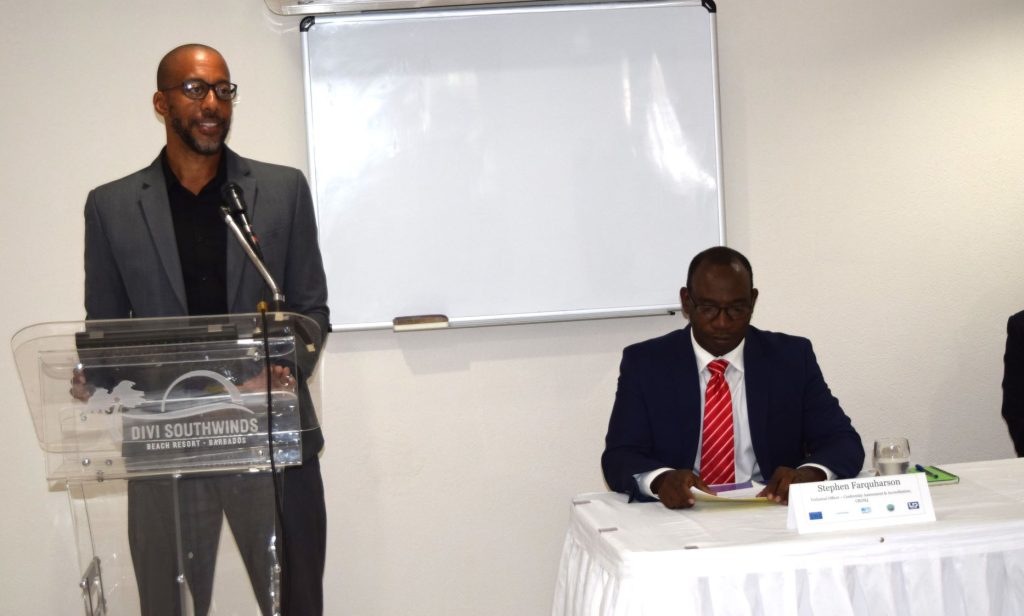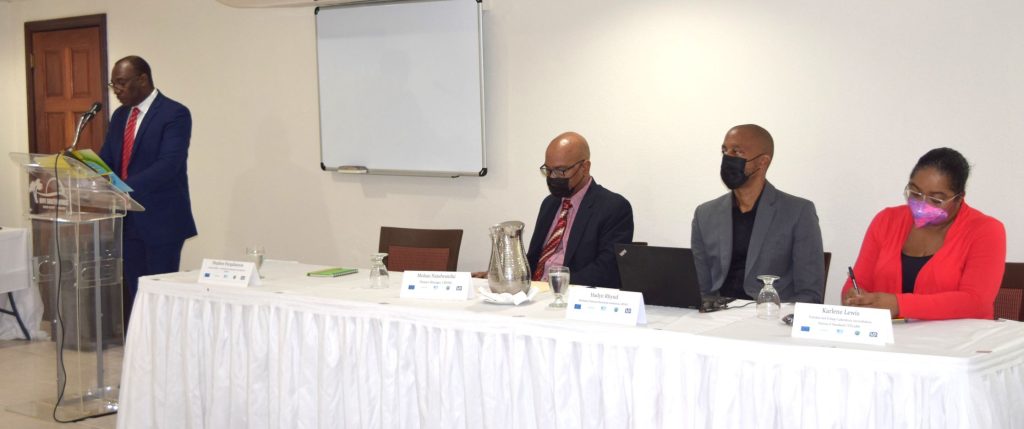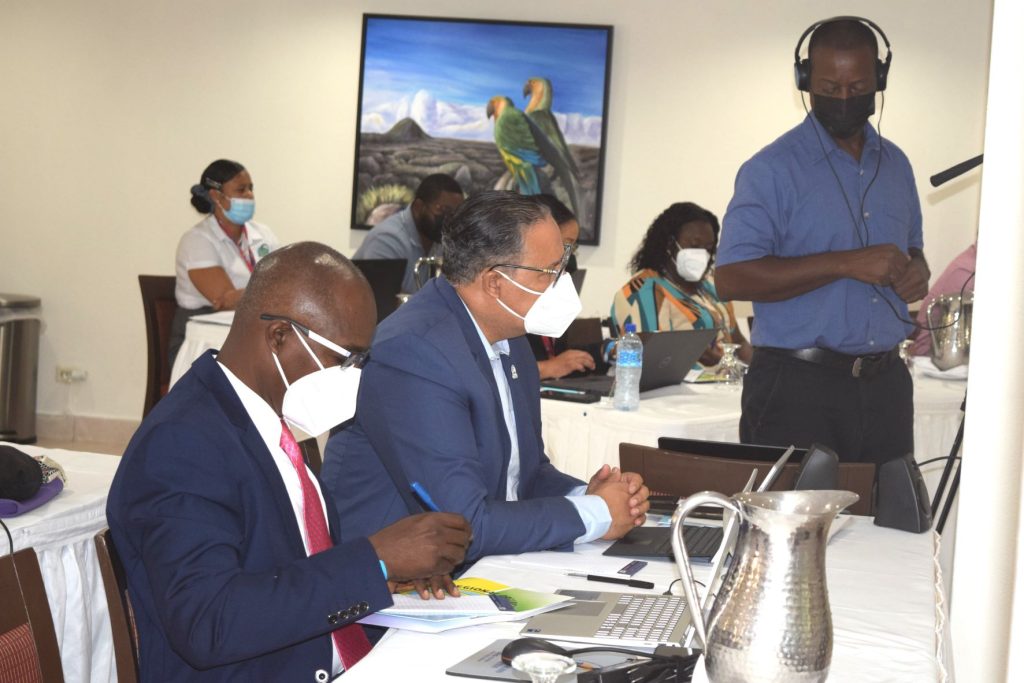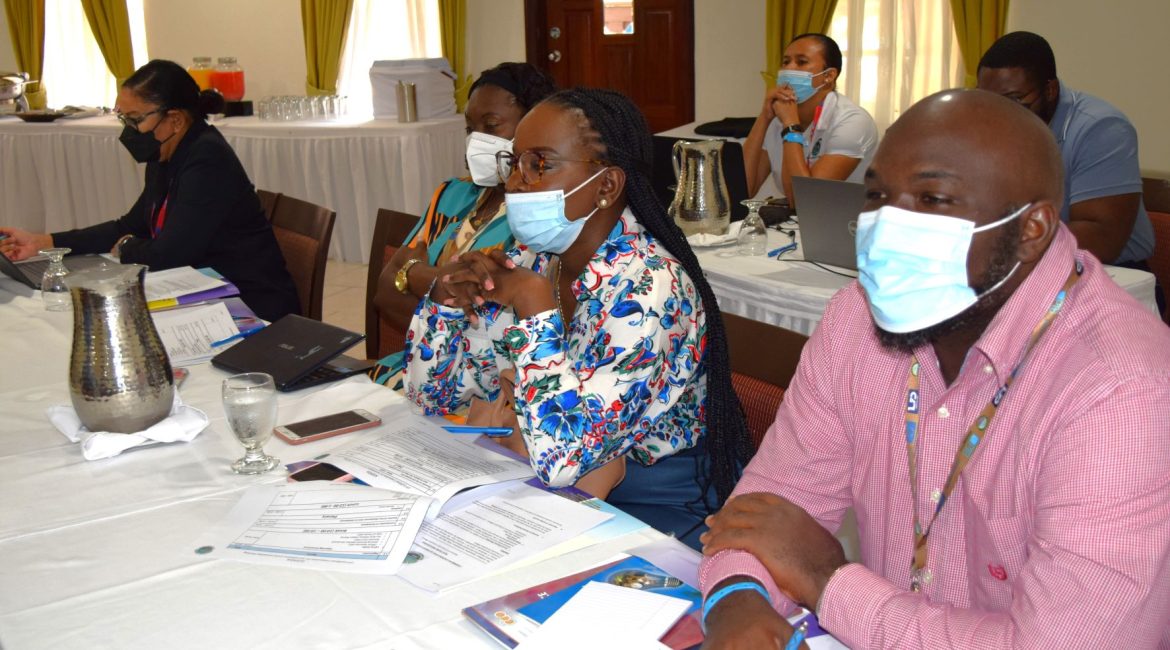Businesses in the Caribbean region now have easier and more affordable access to accreditation services in part due to the hard work of the Caribbean Cooperation for Accreditation Committee, a technical committee of the CARICOM Regional Organisation for Standards and Quality (CROSQ).
So said Acting Director of the Barbados National Standards Institution (BNSI), Mr. Haydn Rhynd as he delivered the featured addressed to the opening of the CCA Committee’s 13th Meeting this week. The BNSI head in addressing the delegates from 15 countries in CARIFORUM noted that as the COVID-19 pandemic had impacted member states of CROSQ, particularly in relation to their social and economic environments, the work of the officers of the CCA made a significant difference to regional businesses seeking accreditation to stay competitive.
“Assisting in the development of the regional quality infrastructure in relation to recognised accreditation services is a significant benefit for the CCA, where readily accessible and economical accreditation services are now available with greater support to facilitate regional and international trade . . .
“Another outcome [from] the work [of] this group, is the various opportunities where manufacturers were able to expand and increase their markets, because we have a wide range of internationally-recognised conformity assessment services being provided within the separate countries. Providing those services to your manufacturers, that’s opening the doors for great opportunities. This also reduces or eliminates really the need for additional conformity assessment when products enter new markets,” said Mr. Rhynd.

Conformity assessment is method of determining if a process, product, material, service, system or individual meets the specification of a standard. This can be done via testing, inspection and certification to prove that those specific requirements are met.
The establishment of the CROSQ – CCA Scheme in 2012 allows Caribbean experts to offer their services where they are most reliably and economically needed, to help businesses get certified and conformity assessment institutions accredited to international standards within the region.
It is because more businesses are demanding such support, that contribution of the CCA Committee in improving trade and exports in the region was being noted, said Mr. Rhynd.
He shared: “Many times, what keeps our innovators and manufacturers back is that every step along the way in new markets, perhaps internationally, they are asked to produce credible results, credible conformity assessment reports for their products. It is costly; it takes time, and sometimes it is very prohibitive.
“Here, in countries, we have developed conformity assessment practices and there is a slogan in countries that says ‘Tested once, accepted everywhere’. That is really what we are trying to do… So, in any economy, confidence levels influence and provide information on social and financial development. So high levels of confidence inevitably translate into economic growth and that is key to remember. Markets tend to cooperate on confidence level and trade… is based on the confidence of trading partners,” he stressed.
Highlighting the contribution of the CCA to the accreditation of the laboratory at the Queen Elizabeth Hospital in Barbados, Mr. Rhynd said many other labs, both medical and non-medical, were currently demanding the accreditation services. as such they sometimes need consultants to help them get accredited in order to bring their systems up to par with international competitors. This was one of the reasons, he pointed out, that the BNSI’s recently commissioned Soils and Materials Laboratory, just outside the city of Bridgetown was now on the path to seeking accreditation.

Mr Stephen Farquharson addressing participants. 
Participants from several CARIFORUM countries attended the Regional CCA Meeting.
In his remarks, CROSQ manager, Mr. Mohan Nandwani noted that the CROSQ – CCA over its near 10-year existence had accredited just over 20 conformity assessment bodies. currently a number of companies are being assisted to get certified under the current European Development Fund Technical Barriers to Trade Programme. The CCA had also trained a number of assessors; created an accreditation database hosted on the crosq.org website of accredited labs and quality professionals in the region; and developed a number of tools to assist in easing businesses through the sometimes-tough accreditation process.
The chairman of the CCA Committee, Ms. Karlene Lewis of the Trinidad and Tobago Bureau of Standards said the work of the National Accreditation Focal Points (representatives within the national standards bodies who assist in sourcing or aiding accreditation for businesses) had been particularly tough during the pandemic.
“We were very innovative and we were very responsive, and through that process we were able to get more entities accredited. We were able to build capacity both within our countries, as well as throughout the region, and on top of that we were able to work together. Through the help of some [regional and international] partners we were able to produce the Regional Laboratory Policy for Non-medical Laboratories. I think we may be the first to have actually done that,” said the chairman, who is also head of the conformity assessment division in the twin island state of Trinidad and Tobago.




